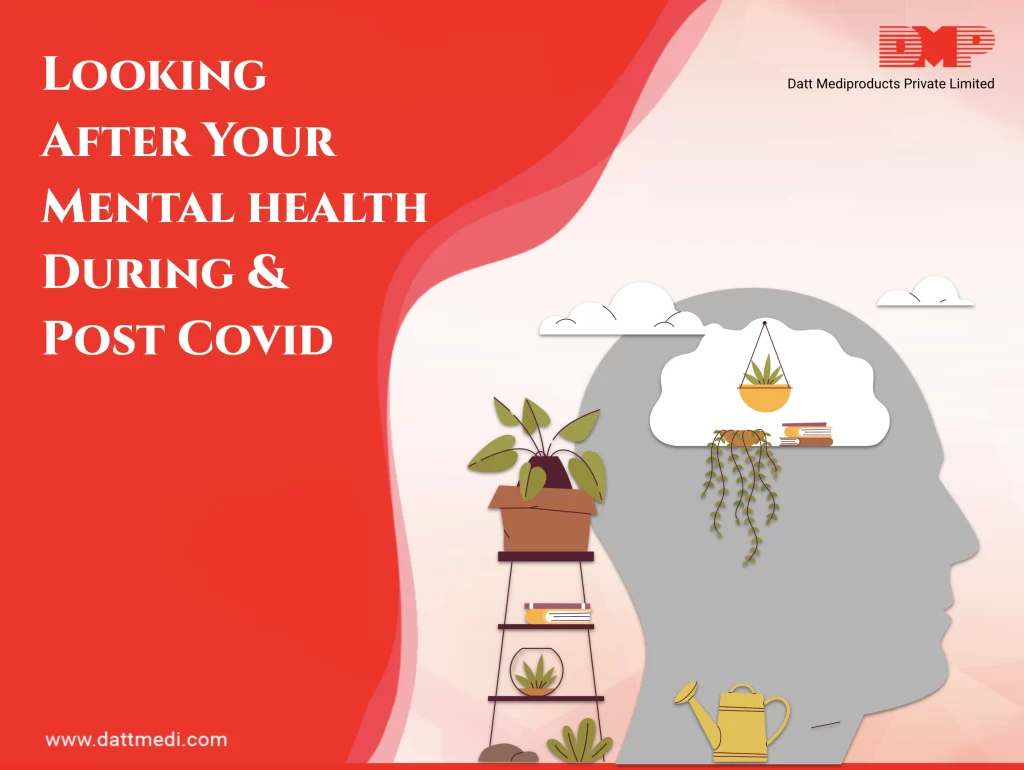
Disease outbreaks such as covid-19 can be frightening as they can have a drastic impact on your mental wellbeing. The repercussions of being worried and anxious about covid-19 or other diseases can be overwhelming. You may feel exhausted, fed up, sad, lonely, anxious or even depressed.
There might also be some changes in your energy levels, sleep pattern, appetite, interests or even in making decisions. The covid-19 pandemic has been stressful for people from several vocations including the frontline workers, students, family members who could not meet each other or those who lost their loved ones.
We have tried to bring some ways to cope with pandemic stress in a healthy way:
– Limit Exposure to Social Media News:
Take required breaks from news stories, including those on social media as this could intensify feelings of distress and worry. Not everything shared on social media is accurate. It is, thereby essential to access quality information from legitimate sources especially which come under Govt. control. Consider unfollowing such hashtags and accounts which cause anxiety.
– Connect with Others:
Reach out to the ones you love and trust. Interacting with family members, colleagues and friends on how you are feeling can be bring a sense of comfort. This could not only benefit the person getting the support but also you as a helper. You may also join peer support communities wherein you can share your experiences and hear from others too.
– Spend Time in Nature:
Get some natural light on routine basis sitting next to your window, watch the sky, birds, plants, flowers, trees, animals and admire mother nature. Spending time with nature can help improve mood, relieve stress or anger, make you feel more relaxed & active, boost confidence & self-esteem, reduce loneliness, connect with local community & provide peer support.
– Do Activities you Enjoy:
Pursue your hobbies, be it reading, writing, singing, dancing, art & craft, playing games or cooking. Healthy distractions are helpful, they can easily get you away from the cycle of negative thoughts that feed anxiety and depression.
– Think Positive:
Cultivate a sense of hope and positive thinking. Focus on the things that are positive in your life, instead of dwelling on bad depressive thoughts and feelings. Make it a habit of listing down things you are thankful for. Accept changes as they are inevitable and always maintain a sense of hope.
– Write a Journal:
Pen down your thoughts when constantly feeling low. Maintain it to keep a check on changes. Keeping a mood diary will help you figure out what makes you feel better and what makes it worse.
– Maintain a Lively Environment:
Making small changes in your living space such as cleaning it, adding indoor plants, proper ventilation, keeping it illuminated, with mild scent diffuser or candles can create a positive environment could help boost the mood and reduce stress levels.
– A Good Physical Health Improves Mental Health:
Physical health is linked with our mental health too. It is cardinal to remain active and follow a healthy routine. Taking deep breaths, stretching, yoga, meditation is found to be associated in improving mental well-being. Research suggests doing exercises release endorphins hormones in the brain which help relieve stress and improve sense of wellbeing.
– Self-Care: Continue to follow self-care strategies as these take care of mental health in addition to improving your ability to cope with life’s ongoing challenges.
You may read our previous blogs “Ways to practice Self-Care during Lockdown” and “Often Ignored, yet Necessary: “SELF-CARE” to know more about self-care, its importance and ways to follow the same.
It is rare to have experienced anything like the coronavirus pandemic in our lifetimes.
We @dattmediproducts realize that it is really critical to manage anxiety post covid. Do not hesitate to seek professional help when required. Consider counselling or a referral to a mental health professional or primary care provider for assistance programs.
Take Rest & Allow your body to Heal.




